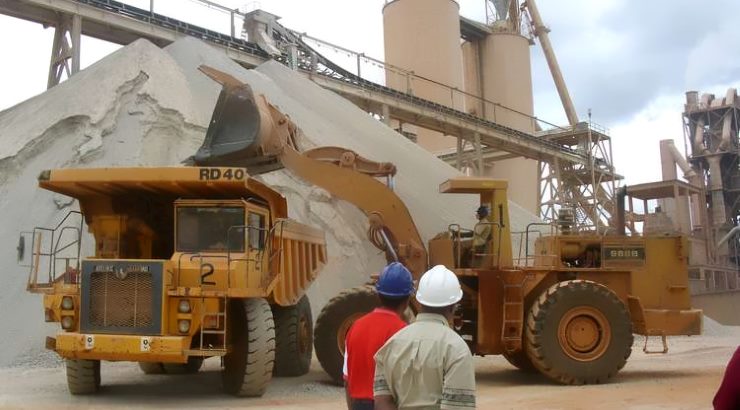Industry News
Bullish foreigners seek share of Kenya cement business
This comes at a time when Kenyan cement manufacturers are going through tough times.

Global cement giants have set their sights on Kenya as they seek quick acquisitions of troubled local manufacturers in a move that is expected to jiggle East Africa’s cement market.
Nigeria-based cement maker Dangote and Omani corporation Raysut Cement are this month expected to finalise their bids for struggling ARM Cement as part of their strategy to expand into Kenya.
In November, Dangote Cement disclosed its intentions to buy a regional cement manufacturer before June this year, effectively giving the Nigerian conglomerate control over East Africa’s cement market.
“We plan to list our business at the London Stock Exchange. In preparation, we are consolidating our cement business. This has seen us increase capacity in various markets and make several acquisitions ahead of the IPO.
“There is also a cement company with operations in Tanzania, Kenya and Rwanda and we hope to take them over,” Dangote Group chairman Aliko Dangote told Bloomberg.
The description of the target aptly fits ARM Cement.
If successful, the buyout will see Dangote abandon its initial plan to build two factories in Rwanda, three in Tanzania, one in Burundi, and another in Jinja Uganda, according to people familiar with the deal.
Dangote, which has about a 45 per cent market share in sub-Sahara Africa with an annual production capacity of 45 million tonnes, has long held interest in venturing into Kenya – with plans underway to build two cement factories by 2021.
The company will, however, compete with Raysut Cement, East Africa’s largest supplier of clinker, which has put forward a Sh10.2 billion bid for ARM Cement – once Kenya’s second largest cement maker after Bamburi.
The bid, if successful, will help the Omani company to become a manufacturer of cement in Kenya, a shift from its present status of being a supplier of clinker to local cement makers.
The investment is part of Raysut’s plan to more than triple its overall production capacity to 20 million tonnes per annum, from the current six million tonnes per annum.
“The acquisition will complement Raysut’s revised strategy to manufacture clinker in proximity to the markets it supplies to in East Africa,” the multinational said last month.
Other multinationals reportedly seeking to acquire ARM include LafargeHolcim, Heidelberg Cement AG, and Titan Cement Co. SA of Greece.
ARM, which was in August placed under the administration of PwC after failing to find an investor to help it manage debts of 14.4 billion shillings, has operations in Kenya, Rwanda, and Tanzania – making it attractive to investors seeking to expand into the region.
READ: Oman’s Raysut Cement seeks to buy ARM for Sh10 billion
In Kenya, ARM operates a clinker and cement grinding plant in Kaloleni and a cement grinding plant at Athi River. The company imports, manufactures, and sells cement in Rwanda through its subsidiary Kigali Cement Company.
In Tanzania, the company runs limestone, clinker and cement plants through its subsidiaries Maweni Limestone Limited and ARM Tanzania.
The planned acquisitions come at a time when Kenyan cement manufacturers are going through tough times, with some falling into money losing territory as they face stiff competition from cheap imports, high production costs, as well as slowing demand from the regional construction industry.
East Africa’s largest cement company Bamburi is, for example, expected to report its lowest earnings in over 10 years for the just concluded financial year, while East Africa Portland Cement is barely surviving – hoping for cash injection through sale of land to redeem its market share.
READ: Dangote enters talks to acquire troubled ARM Cement
Bamburi last month issued its second profit warning, a year after it reported a 67 per cent drop in profits to Sh1.9 billion.
The company said it expects its profit to fall below Sh1.4 billion on difficult market conditions and escalating energy prices in Kenya and Uganda.
It is believed the going is equally tough for non-listed local cement makers, who are not required to disclose their financial statements to the public.
According to Narendra Raval, chairman of Devki, one of the largest private cement makers in the country, there have been significant declines in the sale of cement occasioned by various factors – among them the recent wave of countrywide demolitions that have discouraged new investments.
“Cement sales are down 15 per cent,” Mr Raval told the Business Daily last month.
“The main reason is people are scared of continuing with development due to the demotions of buildings. Structures that were approved by other governments 20 years ago have been demolished.”
Official data shows that the amount of cement consumed in the country fell by 113,096 metric tonnes to 4.13 million metric tonnes in the first nine months of last year, compared to 4.24 million metric tonnes in the same period in 2017.












